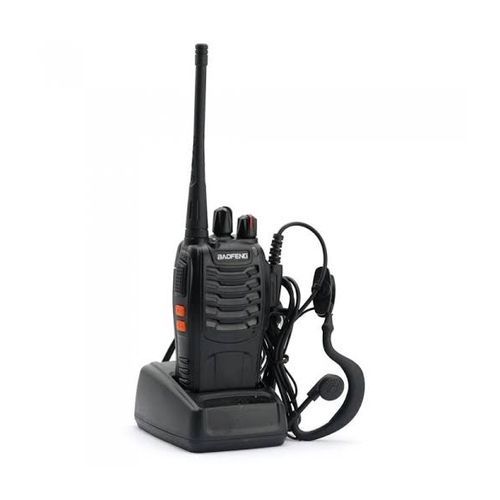Revolutionizing Connectivity: Exploring the Cutting-Edge Applications of Radio Technology
2 min read
In today's rapidly advancing technological landscape, radio technology plays a pivotal role in enabling seamless communication and connectivity across various industries. From wireless communication to satellite navigation systems, radio technology has revolutionized the way we interact and access information. In this blog post, we will delve into the diverse applications of radio technology and explore how it is shaping the world around us.
- Internet of Things (IoT) and Radio Technology:
The Internet of Things (IoT) has emerged as a transformative force, connecting devices and enabling data exchange on a massive scale. Radio technology, particularly in the form of wireless protocols such as Bluetooth and Zigbee, serves as the backbone of IoT networks. These protocols facilitate efficient and secure communication between devices, allowing for smart homes, industrial automation, and even smart cities. - Radio Frequency Identification (RFID) Technology:
RFID technology utilizes radio waves to identify and track objects or individuals. It has found widespread applications in supply chain management, inventory tracking, and access control systems. RFID tags, equipped with tiny radio transmitters, can be attached to products or embedded in ID cards, enabling real-time tracking and efficient management of assets. - Satellite Communication and Navigation Systems:
Satellite communication systems heavily rely on radio technology to transmit signals over long distances. From satellite phones to global positioning systems (GPS), radio waves enable seamless communication and accurate positioning worldwide. These technologies have revolutionized industries such as transportation, logistics, and emergency services, enhancing safety and efficiency. - Radio Astronomy and Deep Space Exploration:
Radio telescopes are instrumental in studying celestial objects and unraveling the mysteries of the universe. By capturing and analyzing radio waves emitted by distant galaxies and celestial bodies, scientists can gain insights into the formation of stars, black holes, and the evolution of the cosmos. Radio astronomy has paved the way for groundbreaking discoveries and expanded our understanding of the universe. - Wireless Energy Transfer:
Radio technology has also enabled wireless energy transfer, eliminating the need for physical connections and cables. Technologies like wireless charging and power transfer systems utilize radio waves to transmit energy efficiently and safely. This has revolutionized the way we charge our devices and has the potential to transform industries such as electric vehicles and renewable energy.
Conclusion:
Radio technology has become an indispensable part of our modern world, driving innovation and transforming industries across the board. From enabling seamless connectivity in IoT networks to revolutionizing deep space exploration, radio technology continues to push boundaries and shape our future. As we embrace the possibilities offered by this versatile technology, we can expect even more exciting applications and advancements in the years to come.
